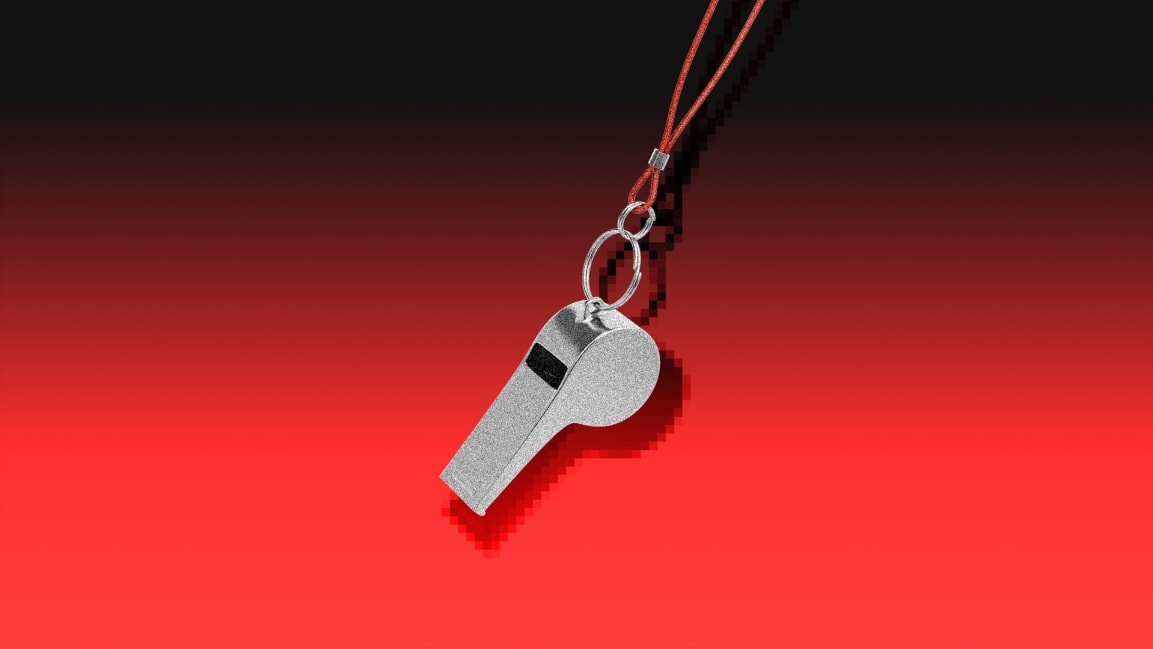This California bill could help more tech whistleblowers speak out
Tech employees who face discrimination and harassment at work may soon have a much easier path to coming forward and making their stories public. Many of these types of stories never see the light of day because companies often push employees with allegations into non-disclosure agreements, where they agree never to reveal what happened to them—even to family members and friends—under the threat of a lawsuit.
Now, California state senator Connie Leyva has introduced a bill that prevents companies from using NDAs to stop workers from sharing factual allegations of any type of discrimination, including on the basis of race, ethnicity, gender, religion, age, sexual orientation, and disability.
The bill, called the Silenced No More Act, is designed to build upon a 2018 California law passed at the height of the #MeToo era that forbids companies from using NDAs in this way to prevent workers from sharing factual stories of gender discrimination, sexual harassment, or assault. That law, called the Stand Together Against Non-Disclosures (STAND) Act, was designed in particular to protect women from men like Harvey Weinstein, but did not prevent companies from using NDAs to cover up other kinds of discrimination. This new law will plug those gaps by extending to all protected categories of discrimination.
“I think [with] this bill, if it’s signed into law again, workers will feel that they are protected to come forward and say, Hey, I am being discriminated [against] at work,” says Leyva. “If companies think they can get away with it, they will get away with it.”
It was the STAND Act that originally enabled two Black women—Ifeoma Ozoma and Aerica Shimizu Banks—to go public with allegations of gender and race discrimination that they’d experienced while working at Pinterest. In summer 2020, during the height of a racial reckoning inspired by the death of George Floyd, their accusations of unfair pay, misleveling, and retaliation spread like wildfire and created a crisis at Pinterest. (In December 2020, the company released the results of an independent investigation into its workplace culture and shared the steps it plans to take to improve.)
Ultimately, Ozoma’s and Banks’s stories set the stage for the company’s former COO, Francoise Brougher, to sue Pinterest for gender discrimination (she received a settlement of $22.5 million) and for a shareholder lawsuit that is still pending.
But while the STAND Act prevented Pinterest’s lawyers from suing Ozoma and Banks for breaking their NDAs when it came to gender discrimination, they weren’t protected in the same way for their allegations of race discrimination. As Ozoma put it, “everything is interconnected as a Black woman. That meant that I was willing to take the informed gamble . . . that Pinterest could decide to sue me on the race claims.”
The Silenced No More Act considers this kind of intersectional situation. “No one else should be in a position that I was in, where I was covered under the law for one part of myself, but not the other part,” Ozoma says.
So far, Ozoma and Banks are rare whistleblowers who have actually spoken on the record to reporters about their experiences. But the Silenced No More Act, if it’s signed into law, could create the conditions for more employees to speak up.
“Stories are stronger when people are on the record,” Ozoma says. “You could have 12 anonymous or background sources [in a news story], but a company can brush them off as well. These are just disgruntled employees because there’s no name attached. And so there’s a lot of power in being able to share your story.”
The bill doesn’t outlaw NDAs completely; as Leyva points out, companies would still be able to use them for trade secrets and private company information. Plus, Ozoma points out, workers should retain a right to confidentiality if they want it. The Silenced No More Act simply provides the option to share, even if it’s just talking about their experiences with friends and family, without worrying about being sued.
“People should be compensated for wages that are lost when they’re pushed out of the role or when it no longer is tenable for them to stay in a role because their abuser is still employed as well,” Ozoma says. “But that shouldn’t strip them of the ability to demand accountability at the point at which they feel comfortable and safe doing so.”
For Ozoma, who is working on lobbying for the bill, the act is all about this accountability. It will be particularly potent in both the tech and media industries, where companies, often based in California, have a long history of using NDAs and secrecy to cover up discrimination and harassment.
“In order to engage in even a conversation about accountability, we need to know what’s happening,” she says.
The bill will only protect workers in California, though Leyva is optimistic that other states will pick up the idea of releasing workers with discrimination claims from their NDAs. The bill was just introduced this week, and she hopes it will ultimately be signed into law later this year.
“The Black Lives Matter movement and everything that happened around George Floyd and race discrimination over the summer I think can really help propel this bill forward,” she says. “It’s it’s long overdue that we end race discrimination at work.”
(5)



